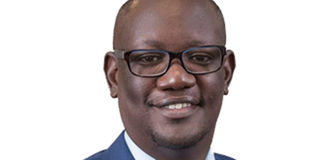Electoral reform Bills are good starting point

What you need to know:
Outlaw presidential donations. Also noteworthy, is that the Bills seek to outlaw donations from candidates during elections - a proposal from the court that seeks to minimise the effect of presidential donations during campaigns on electoral outcomes.
Ever since the Attorney General presented five electoral reform Bills in Parliament, both traditional and social media are awash with a mixture of displeasure, disappointment and in some cases cynicism built around a narrative that the proposed legislations are not far-reaching to cause significant improvements in the conduct of free and fair elections.
While I appreciate the intellectual premise of this discourse, I am inclined to address the opportunity that I see in these Bills.
First of all, I think it is commendable that the Attorney General and the government at large have dutifully obliged to the directions of the Supreme Court to not only come up with electoral reform proposals, but to also make a deliberate effort to respond to the specific issues raised by the honourable court.
A quick look at the five Bills will show that a number of recommendations for electoral reforms proposed by the Supreme Court in Amama Mbabazi versus Yoweri Museveni and two others Presidential Election Petition No 1 of 2016, have been considered.
Whereas it is true that not all recommendations have been incorporated into the Bills, there are quite a number of recommendations that were considered ranging from increasing the time for filing a presidential election petition; determination of a presidential election petition and; for holding a fresh election, to prescribing sanctions against State organs or officers, who deny equal access to all presidential candidates to State-owned media, one can see an attempt to accommodate a number of the Supreme Court proposals.
Also noteworthy, is that the Bills seek to outlaw donations from candidates during elections - a proposal from the court that seeks to minimise the effect of presidential donations during campaigns on electoral outcomes.
The proposal to introduce a legal framework for use of technology in elections as proposed by the Supreme Court too will go along way to improve voter registration and identification processes and facilitate effective and auditable processes of election results transmission.
Beyond the specific recommendations of the Supreme Court, the electoral reform Bills also contain a number of proposals from the political parties in the Interparty Organisation for Dialogue (IPOD) framework and under the umbrella of the National Consultative Forum (NCF) notable among which is the provision requiring candidates belonging to political parties, who intend to run as “Independents” to formally relinquish their political party membership at least one year to the next elections.
If this proposal is accepted, it will hopefully strengthen the accountability relationship between leaders and their political parties.
Political parties were also concerned about the constant electioneering that characterizes politics in Uganda due to the unending creation of new administrative units. Under the electoral bills, elections for new administrative units are proposed to only take place in the successive election cycle.
There is no doubt that there are still many more improvements that can be made to the electoral law.
A good example is the set of important proposals contained in the “citizens compact on free and fair elections” and indeed the IPOD electoral reforms that were developed during the tenure of the 9th Parliament, but were never considered ostensibly due to lack of sufficient time.
All the above together with new electoral reform proposals that were discussed at the IPOD Summit of leaders in May this year that have not been considered like the need to reduce nomination fees for prospective candidates to make elections more inclusive should, hopefully, be considered, especially within the window of opportunity provided by the consultation process of the Legal and Parliamentary Affairs Committee of Parliament that is currently underway.
It is incumbent upon all democracy loving Ugandans to look at the electoral reform Bills presented by government as a good starting point to have an honest discussion on improving the integrity and legitimacy of the electoral process.
Mr Frank N. Rusa is the Country Representative Netherlands Institute for Multiparty Democracy (NIMD).


